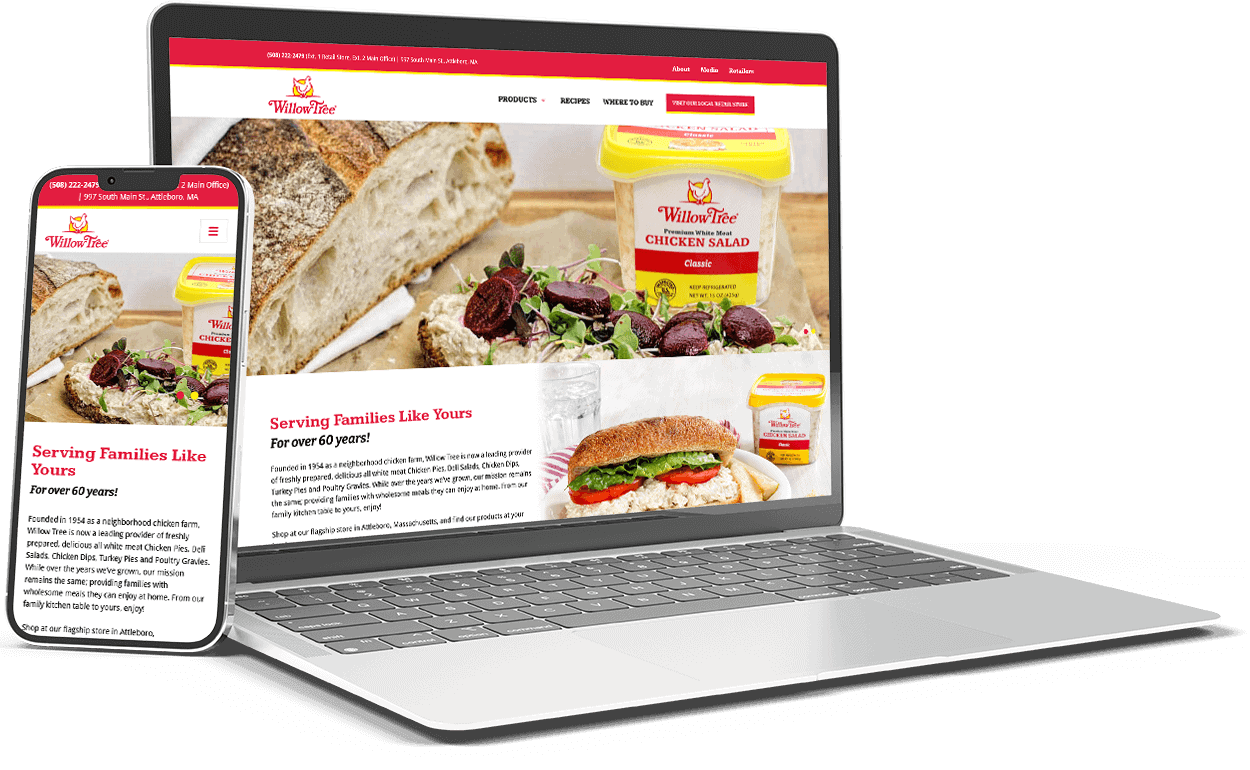If you live in Rhode Island or Massachusetts, chances are you’re familiar with Willow Tree. Those square yellow tubs of Willow Tree Chicken Salad in Buffalo, Classic, Cranberry, and Curry flavors are snapped up in supermarkets by legions of Willow Tree fans throughout New England. Founded in 1954 as a neighborhood chicken and egg farm in Attleboro, Massachusetts, Willow Tree has evolved into a well-known and well-loved regional producer of chicken and turkey pies, deli salads, dips, and gravies. The success of its most popular items – chicken salad and chicken pie – has helped drive the company’s growth. Willow Tree products can now be found in 3,000 grocery stores on the East Coast, and the company operates a flagship store in its original Attleboro, Massachusetts location.

The primary challenge for Willow Trees’ website, as with many other consumer brands, was how to create clear pathways for their B2C and B2B customers who would be coming to this site with different goals.
Keeping it Warm and Homey
As a well-loved consumer brand and purveyor of comfort food, it was important to match Willow Tree’s warm, homestyle look and feel on their new website. We did this by featuring the same red and yellow color palette, font styles and graphic shapes used on Willow Tree product packaging. And simple illustrations with a hand-drawn, vintage feel convey Willow Tree’s “country farm” origins.
Connecting with Fans
The new site needed to make it easy for visitors to learn how they can find and purchase Willow Tree’s most popular items – Chicken Salad and Chicken Pies. To achieve that, we created an intuitive “Where to Buy” section that allows users to conduct a geographic search for these specific products, along with a map of store locations, and directions.
As a consumer brand, Willow Tree has an active social media presence, so we placed their Instagram feed on the home page to create a fresh stream of Willow Tree’s mouth-watering posts.
To engage local customers, a button in the header directs visitors to a webpage dedicated to Willow Tree’s flagship store in Attleboro. And a section featuring printable recipes offers more ways for fans to enjoy Willow Tree products and engage with the website.
Like other consumer brands we’ve worked with, Willow Tree’s website also needed to engage another important audience – potential retailers. A prominent “Retailers” link in the site’s header leads to an intake form for retail inquiries. There’s also a section for retailers to download product images and logos for point-of-sale marketing.
Key/Notable Features: